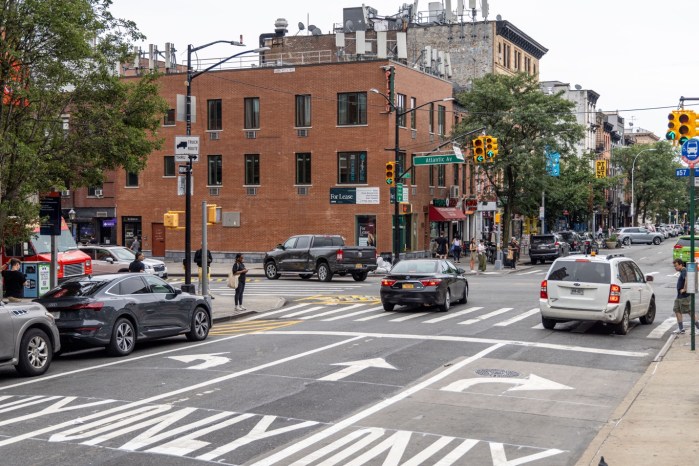Cops weren’t looking for old Gibson guitars when they started hitting Brooklyn pawn shops this week, but they did make a few merchants sing the blues.
“I was threatened to be thrown in jail if I didn’t cooperate and produce the information they needed,” claims Albert Cruze, manager of EZ Pawn on Flatbush Avenue between avenues U and V.
Police are visiting pawn shops in southern Brooklyn in search of merchandise they believe was swiped in a recent string of car break-ins, robberies and burglaries in Marine Park and Mill Basin, Lieutenant Robert Haley announced at the Marine Park Civic Association meeting on March 16.
At the shops, officers peruse records offering details about purchased merchandise and sellers. Cops generally have the description of a stolen item.
“They’re very demanding,” Cruze said. “They say this is who I am, this is what you gotta produce.”
Recalling a recent meeting with a cop, Cruze said, “He saw a name he recognized and right away he thought the items he brought in were stolen. He wanted me to show him all the merchandise.”
“They are mandated to give us the information,” explained Captain Patricia MacDonald, executive officer of the 63rd Precinct.
MacDonald said police officers are expected to approach pawn shop staffers in a courteous manner.
“They’re always supposed to be professional and respectful,” she said. “I don’t know what the situation was [at EZ Pawn].”
When the cops visit pawn shops — there’s a few within the 63rd Precinct’s coverage area of Bergen Beach, Mill Basin, Mill Island, Marine Park, Flatlands and Georgetown and more in nearby Flatbush — and determine something to be stolen, “They have to get subpoenas and then we hand over the merchandise,” Cruze said.
The shops are out the cash they paid for the merchandise — temporarily. The criminals are ultimately responsible to pay the price of the goods.
“Eventually, we get something back in return,” Cruze said.
Pawn shop staffers insist that they try to avoid buying stolen items like jewelry or computers.
“If they come in with something with initials, we’ll say, ‘What’s your name?’” Cruze explained. “If it doesn’t match the initials, we figure it’s stolen.”
They also ask the sellers how long they’ve had the merchandise. Responses like, “I found it,” give the impression of stolen items, Cruze noted.
Cruze says he understands why cops check his shop’s inventory, but he doesn’t appreciate them being “disrespectful” to the store’s staffers.
“I get why they’re taking the items because they’re trying to help people out,” he said. “But I feel like they look down on us. Don’t be rude or disrespectful. Be more understanding. That’s all.”






















